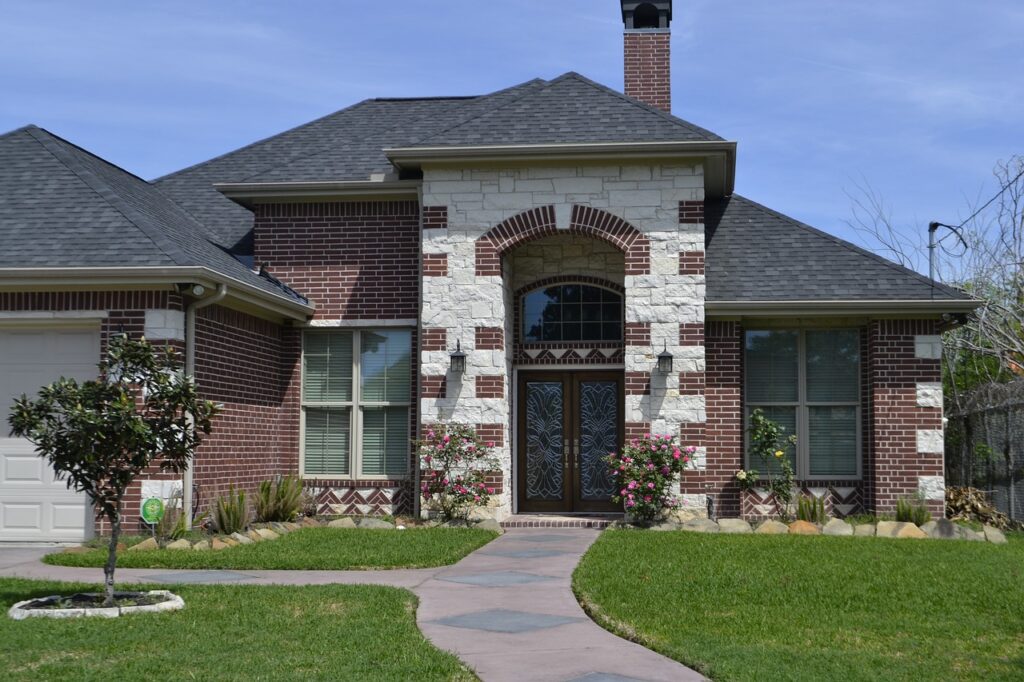The average property tax in Arizona is nearly half of the national average. Each county’s rate is different and ax rates are differentiated based on the property type and owner. Taxes are due based on the amounts owed, and there are several property tax exemption programs. Read on for the details.
Table of Contents
How much is property tax in Arizona?
The median property tax in Arizona is around 0.51%, which is well below the national average of 0.99%. This translates into around $1,707 per year, which is $1,088 less than nationwide rates.
How do property taxes work in Arizona?
The AZ property tax rate varies by county, and each of the Arizona counties has its own assessor. Commercial, residential, industrial, and agricultural property are all subject to property taxes in AZ. When it comes to property type, residential property is assessed according to limited property value (LPV), while commercial real estate is based on full cash value.
Arizona Property Tax Rates
There are two types of Arizona property tax:
- Primary tax rates – Used to pay for government entities like counties, towns, cities, and school district taxes, they account for the greater share of taxpayer costs.
- Secondary tax rates – Used to pay for bond issues, special district taxes, and property tax overrides, they make up a smaller percentage of taxpayers’ overall payments.
Calculating Arizona Property Tax
The Arizona property tax rate changes yearly based on the needs of a county and how many taxpayers live there. Every year, the LPV of homes is reassessed. Home values can only go up by 5% per fiscal year.
Factors that influence the rate include school districts, special districts, and bonds, which are used to pay for special projects. Taxpayers will have to fund both K-12 schools and community college districts in their area.
The school district percentage is always capped at 1% of the total assessed value. Owner-occupied residences receive a Homeowner Rebate of up to $600, or about 40% of the applicable tax.
Property Taxes in Arizona by County
Here is the list of effective rates for Arizona property taxes divided by county, based on assessed values of owner-occupied homes.
| County | Average Effective Property Tax Rate |
| Apache | 1.65% |
| Cochise | 0.80% |
| Coconino | 0.63% |
| Gila | 0.72% |
| Graham | 0.64% |
| Greenlee | 0.39% |
| La Paz | 0.80% |
| Maricopa | 0.64% |
| Mohave | 0.70% |
| Navajo | 0.75% |
| Pima | 1.00% |
| Pinal | 0.75% |
| Santa Cruz | 0.76% |
| Yavapai | 0.58% |
| Yuma | 0.84% |
Property Tax in Apache County
At 1.65%, Apache County has the highest property tax rate in Arizona. However, the median property taxes here were about $1,108 in 2022, which is less than other counties in the state. This is due to the county’s low house values of only $61,800.
Property Tax in Cochise County
Averaging 0.80%, property taxes in Cochise County differ significantly across districts. Tax rates were recently raised for Naco, Double Adobe, Palominas, McNeal, and Pomerene districts. Home values were around $150,100 as of the latest census, adding up to an average property tax bill of $1,200.
Property Tax in Coconino County
Coconino County has a relatively low property tax of 0.63%. However, it also has some of the highest property values, averaging approximately $299,100 between 2017 and 2021. This translates into a larger tax bill (of around $1,884) compared to areas with higher tax rates.
Property Tax in Gila County
Property taxes in Gila County have steadily decreased to 0.72% over the last five years, and so have home values. A home there is worth around $157,600 as of 2023, meaning the average homeowner owed $1,134 in taxes.
Property Tax in Graham County
Graham County has a relatively low property tax of 0.64%, as well as home values of approximately $150,400. As assessors have gradually dropped the property tax, residents here can expect just $962 per year in taxes.
Property Tax in Greenlee County
At 0.39%, the rural area of Greenlee County has the lowest rate among Arizona property taxes. With a typical home value of $117,300, the average resident pays around $457.
Property Tax in La Paz County
The tax rate of 0.8% in La Paz County, when combined with a median property value of just $84,600 as of 2020, means most people are billed approximately $676 per year.
Property Tax in Maricopa County
Home to the two of the largest metropolitan areas in the state, Maricopa County’s property tax of 0.64% still translates to larger bills than in other parts of Arizona. The value of homes across the entire region averages $278,700, coming out to taxes of $1,783 per resident. However, the exact amount due per resident varies greatly by city.
Property Taxes in Phoenix
Property tax rates are expected to go up by at least 2% in Phoenix, in order to accommodate the new construction of schools and municipal buildings. Home values are around $250,800, coming out to a $1,605 bill per year.
Property Taxes in Mesa
Property taxes in Mesa aren’t much cheaper than in Phoenix, with home values of $245,500 as of the last census. At $1,570 per year, residents are taxed only about $30 less than in the state capital.
Property Tax in Mohave County
Property tax rates in Mohave County average 0.70%. With median home values at $172,100, residents typically pay $1,204 in taxes per year, which is about $500 lower than the state average, making this an affordable area to live in.
Property Tax in Navajo County
The low home values of $135,800 make the higher property tax rate of 0.75% in Navajo County more bearable, especially as there are numerous exemption options available for residents. Annual tax payments here average $1,018.
Property Tax in Pima County
At 1%, Pima County has the second-highest tax rate on property in Arizona. Though its property values are lower than in Phoenix, they still have a larger tax burden. The average home is valued at $199,400 across the region, meaning the typical household is billed $1,994.
Property Taxes in Tuscon
Tuscon is largely responsible for the overall property value in Pima; its median value is the same as the entire county’s at $199,400. As the case is in Cochise County, changes to school districting will result in slightly larger bills for residents.
Property Tax in Pinal County
Slightly more expensive than Tuscon, Pinal County’s median home value is $200,200. However, taxes are still lower thanks to the 0.75% rate. The average resident pays $1,501 in taxes per year.
Property Tax in Santa Cruz County
Homes in Santa Cruz County are relatively cheaper than elsewhere in Arizona, at a median value of $152,700, which makes the 0.76% effective property tax rate much more bearable. Residents typically contribute $1,160 every tax season.
Property Tax in Yavapai County
The median home value in Yavapai County is $273,300 and the tax rate averages 0.58%. So typical residents owe $1,585 in property taxes each year.
Property Tax in Yuma County
Yuma County’s low property values of $139,200 are tempered by a higher tax rate of 0.84%. Residents here typically contribute $1,169 in property taxes per year, which is comparable to the more expensive Santa Cruz area.
When are property taxes due in Arizona?
The Arizona property tax due dates are October 1st and March 1st. If you owe more than $100, half is due on October 1st, while the other half is due on March 1st of the following year.
Arizona Property Tax Exemptions
There are a few Arizona property tax exemption programs, as well as rebate programs for specific groups, such as widows and widowers, seniors, and disabled individuals.
The exemptions and rebates are as follows:
- Widows and widowers – This property tax exemption for bereaved spouses reduces the assessed home value by $3,000. Widowers and widows can also defer their taxes until they sell the property, the property becomes income-producing, or they pass away.
- Senior citizens – The senior property valuation protection option, also known as a senior freeze, will lock in tax rates for a period of three years, after which the individual will have to apply for a renewal. It applies to Arizona residents 65 years or older who make an average income of less than $43,872 (if a single owner) or $54,804 (if two owners).
- Disabled individuals – Arizona residents who are listed as totally and permanently disabled are exempt from taxes up to a certain dollar amount, which varies by municipality. They must renew their exemption every year.






